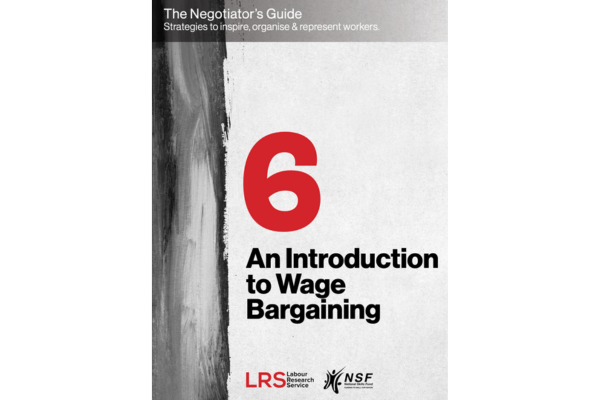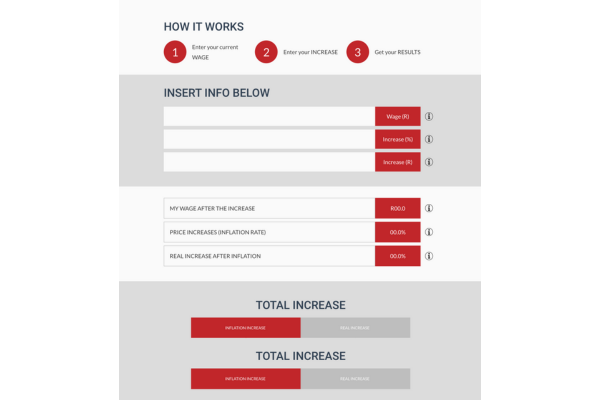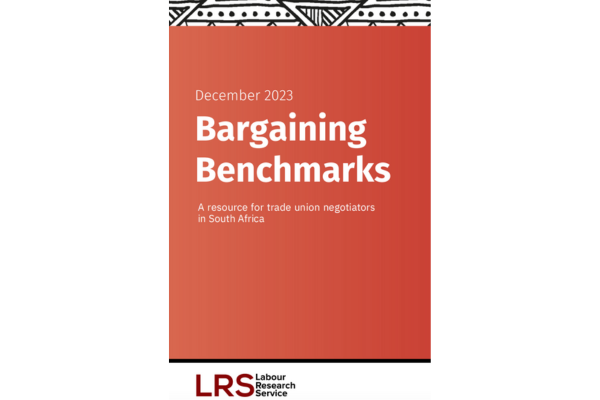Refresh your knowledge and skills on wage bargaining using LRS resources created for trade union negotiators.
1. An introduction to wage bargaining
This guide will help you think about how to approach bargaining and the issues every negotiator needs to consider. Inside, you will find:
- Steps to building a compelling wage demand.
- Different approaches to deal with inflation.
- Simple formulas the negotiator can use to calculate percentages and amounts of money.
- Communicating calculations and other matters to workers to better manage expectations.
2. The Wage Calculator
The LRS online wage calculator tells a negotiator how much a percentage increase is as an amount of money. The calculator helps a negotiator understand the effect of inflation on a wage increase. It considers the current inflation rate and wage and gives the rand increase needed to maintain purchasing power. This information helps negotiators secure fair pay increases that can maintain the living standard of workers.
3. Agreements database (AGREED)
AGREED is a database of collective agreements for bargaining and research purposes. AGREED contains over 2,000 agreements, ranging from local collective and recognition agreements to global framework agreements covering the continent.
Interested in how other unions have structured parental leave, meal allowances and pay increases? Do you want to find agreements made by a union in your sector? Do you want to compare your agreement with the agreement of other unions or sectors? Do you want to compare how workers get treated in the same company in another country? You can do all this and more on AGREED. Filter agreements by country, bargaining unit, industry, agreement type, union and years of implementation. This information will help you negotiate and write your agreement. Also, unions can store their agreements on AGREED and access them easily when needed.
Read: How to use AGREED.
Watch: Why you should use AGREED
4. Bargaining Benchmarks
These five benchmarks will help the union negotiator become an informed participant in the bargaining process.
5. Sector Reports 2023 | Negotiating with South African multinationals
Our sector-specific information can help unions formulate bargaining demands based on a company’s financials and executive pay. View revenue, profit and directors’ remuneration for retail, banking and financial services, construction, diversified, food and beverage, health, hospitality, industrial, mining, paper and packaging, technology and telecommunications, and transport sectors.
Watch: Africa’s retail landscape in 2024
Bonus: National minimum wage
The national minimum wage in 2024 is R 27,58 for each ordinary hour worked. See the Government Gazette.
RELATED ARTICLE










